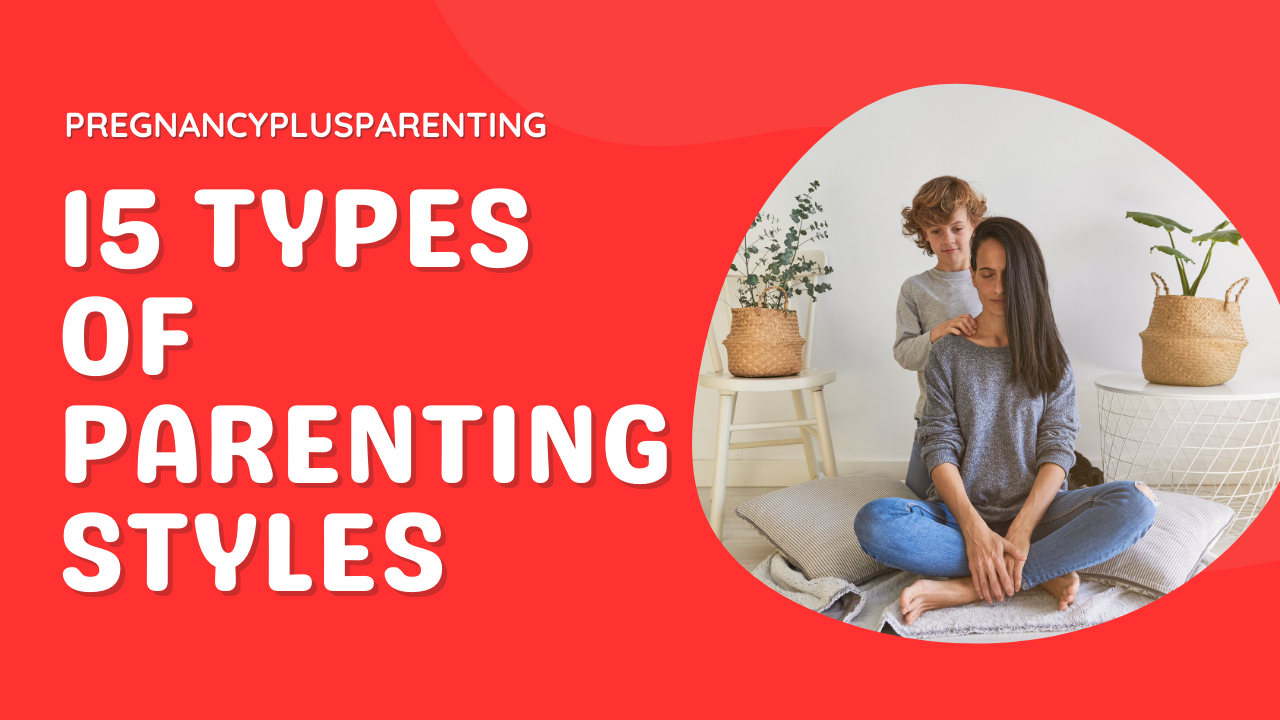15 Types of Parenting Styles
Parenting styles play a crucial role in shaping a child’s personality, behavior, and emotional well-being. While many people are familiar with the main categories of parenting, there are numerous variations that reflect cultural, social, and individual factors. Here’s a detailed look at 15 parenting styles, their key characteristics, and their effects on children.
1. Authoritative Parenting
Characteristics:
- High responsiveness and high demands.
- Sets clear rules but is nurturing and supportive.
- Encourages independence while maintaining structure.
Effects on Children:
- High self-esteem and emotional intelligence.
- Strong problem-solving skills and academic success.
- Develops a sense of responsibility.
2. Authoritarian Parenting
Characteristics:
- High demands but low responsiveness.
- Enforces strict rules with little room for flexibility.
- Prioritizes obedience over emotional needs.
Effects on Children:
- May develop obedience but often lack self-confidence.
- Higher risk of anxiety and fear-based compliance.
- Struggles with creativity and decision-making.
3. Permissive Parenting
Characteristics:
- High responsiveness but low demands.
- Few rules and minimal enforcement.
- Acts more as a friend than an authority figure.
Effects on Children:
- May struggle with self-discipline and responsibility.
- Risk of entitlement and poor boundaries.
- Strong emotional bond with parents.
4. Uninvolved Parenting
Characteristics:
- Low responsiveness and low demands.
- Little involvement in the child’s life.
- Often arises from neglect or personal struggles.
Effects on Children:
- Poor emotional and social development.
- Difficulty forming relationships.
- Increased risk of behavioral problems and academic struggles.
5. Helicopter Parenting
Characteristics:
- Overly involved and controlling.
- Monitors every aspect of the child’s life.
- Often prevents the child from facing challenges independently.
Effects on Children:
- Lack of problem-solving skills.
- Increased anxiety and dependence on parents.
- Difficulty handling failure or stress.
6. Free-Range Parenting
Characteristics:
- Emphasizes independence and trust.
- Allows children to explore and make their own decisions.
- Provides minimal supervision but ensures safety.
Effects on Children:
- Develops confidence and self-reliance.
- Strong critical thinking and decision-making skills.
- May face risks if boundaries are not well-defined.
7. Attachment Parenting
Characteristics:
- Focuses on emotional closeness and bonding.
- Practices include co-sleeping, extended breastfeeding, and babywearing.
- Emphasizes responsiveness to the child’s needs.
Effects on Children:
- Strong emotional bonds and security.
- High empathy and emotional intelligence.
- Risk of dependency if boundaries are not introduced over time.
8. Tiger Parenting
Characteristics:
- Strict and demanding, often focused on academic and extracurricular achievements.
- Expects excellence with little tolerance for mistakes.
- High control with low emphasis on emotional support.
Effects on Children:
- High achievers but prone to stress and burnout.
- Risk of self-esteem issues if expectations are not met.
- Strong work ethic but limited emotional well-being.
9. Gentle Parenting
Characteristics:
- Prioritizes empathy, respect, and understanding.
- Avoids punitive measures, using natural consequences to teach lessons.
- Focuses on guiding behavior rather than controlling it.
Effects on Children:
- Develops emotional intelligence and self-discipline.
- Encourages open communication and trust.
- Risk of entitlement if boundaries are inconsistent.
10. Lawnmower Parenting
Characteristics:
- Removes obstacles from the child’s path to ensure success.
- Prioritizes shielding the child from challenges.
- Often overprotective and highly involved.
Effects on Children:
- Limited resilience and problem-solving skills.
- Dependency on parents for navigating challenges.
- High expectations but low preparation for setbacks.
11. Overprotective Parenting
Characteristics:
- Highly focused on preventing risks or harm.
- Limits the child’s freedom and exposure to challenges.
- Driven by fear of failure or danger.
Effects on Children:
- Reduced confidence and independence.
- Difficulty managing stress or fear in new situations.
- Over-reliance on parental support.
12. Positive Parenting
Characteristics:
- Builds trust, respect, and encouragement.
- Uses positive reinforcement and open communication.
- Prioritizes understanding over punishment.
Effects on Children:
- High self-esteem and motivation.
- Better emotional regulation and problem-solving skills.
- Strong parent-child relationship.
13. Narcissistic Parenting
Characteristics:
- Prioritizes the parent’s needs and desires over the child’s.
- Uses the child to fulfill personal ambitions.
- Often neglects the child’s emotional well-being.
Effects on Children:
- Low self-esteem and feelings of inadequacy.
- Difficulty forming healthy relationships.
- May develop people-pleasing tendencies.
14. Traditional Parenting
Characteristics:
- Emphasizes family values and cultural traditions.
- Often hierarchical, with clear roles and expectations.
- May prioritize discipline and respect over emotional needs.
Effects on Children:
- Strong sense of cultural identity and family loyalty.
- Risk of stifled individuality or creativity.
- Builds respect for authority but may lack emotional expression.
15. Mindful Parenting
Characteristics:
- Focuses on being present and aware of the child’s needs.
- Encourages intentional communication and emotional regulation.
- Teaches children to manage their own emotions through example.
Effects on Children:
- High emotional intelligence and self-awareness.
- Better coping mechanisms for stress and challenges.
- Strong connection with parents.
How Parenting Styles Impact Development
Each parenting style uniquely shapes a child’s:
- Emotional Growth: Secure and nurturing styles promote emotional stability.
- Behavior: Discipline methods influence self-control and social skills.
- Academic Success: Supportive and structured environments enhance learning.
- Resilience: Independence-building styles foster adaptability.
Finding the Right Parenting Style
While no single style works for every family, blending elements of various approaches can lead to effective parenting. The key is to adapt to your child’s individual needs and developmental stage while maintaining consistency, empathy, and structure.
Conclusion
Understanding these 15 parenting styles allows parents to reflect on their methods and make informed choices. Parenting is a continuous learning process, and striving to strike a balance between love, guidance, and discipline helps raise confident, emotionally healthy children.






